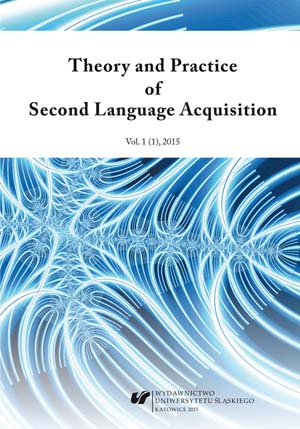The Effect of Prosody on Disambiguation: A Case of Universal Quantifier and Negation
The Effect of Prosody on Disambiguation: A Case of Universal Quantifier and Negation
Author(s): Priya Ananth, Masaaki KamiyaSubject(s): Language and Literature Studies, Foreign languages learning, Theoretical Linguistics, Applied Linguistics, Language acquisition
Published by: Wydawnictwo Uniwersytetu Śląskiego
Keywords: prosody; disambiguation; negation; prosodic cues; relevance theory
Summary/Abstract: This study is concerned with L2 Japanese learners’ interpretation of scopally ambiguous sentences containing negation and universal quantifier using prosodic cues. It has been argued, in previous literature, that native adult speakers of English as well as Japanese interpret such sentences both on their surface (total negation) and inverse scope (partial negation) readings in the presence of prosodic cues. The present study shows, however, that L2 Japanese speakers predominantly favor the total negation reading even in situations where the prosodic cues point them to the partial reading. These outcomes indicate that L2 learners of Japanese do not attach “optimal relevance” to prosodic cues when disambiguating scopally ambiguous sentences. The results also imply that for L2 Japanese learners, clues other than prosody may be required to carry out disambiguation.
Journal: Theory and Practice of Second Language Acquisition
- Issue Year: 1/2015
- Issue No: 1
- Page Range: 97-123
- Page Count: 27
- Language: English

